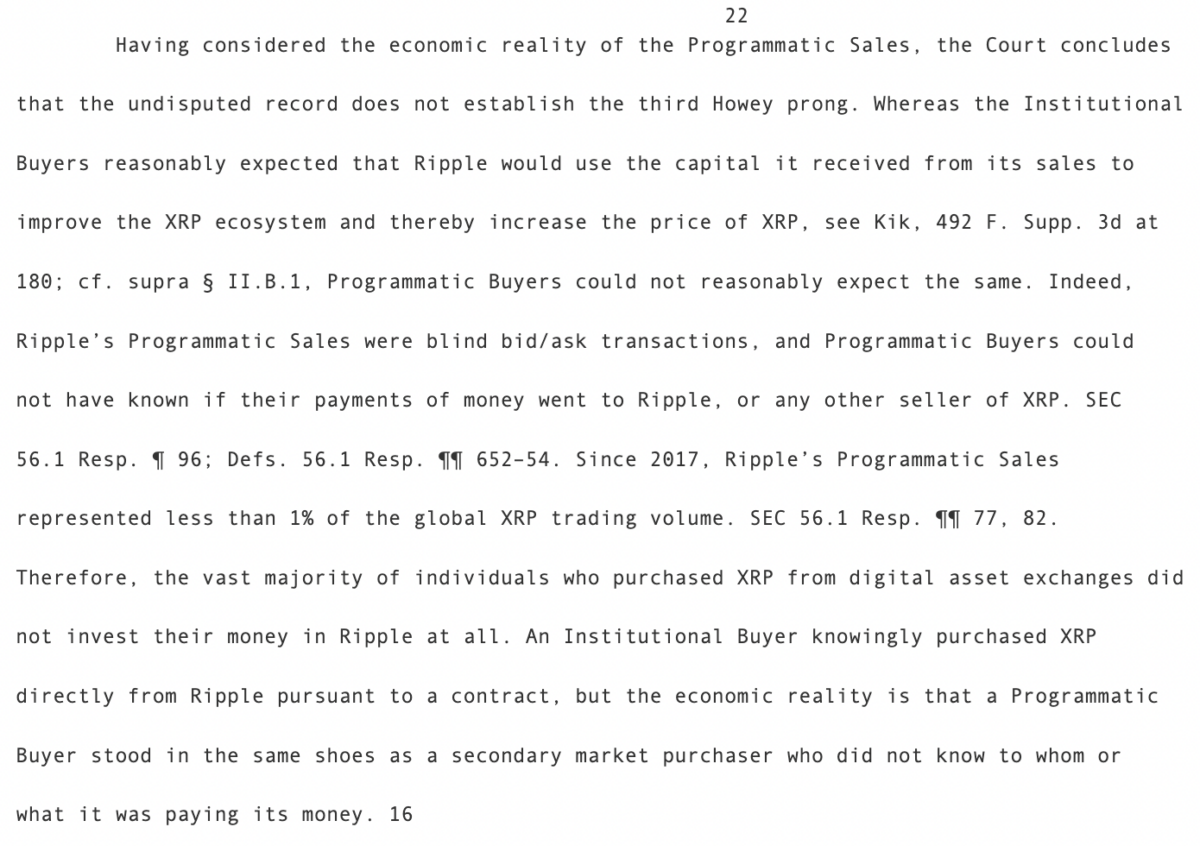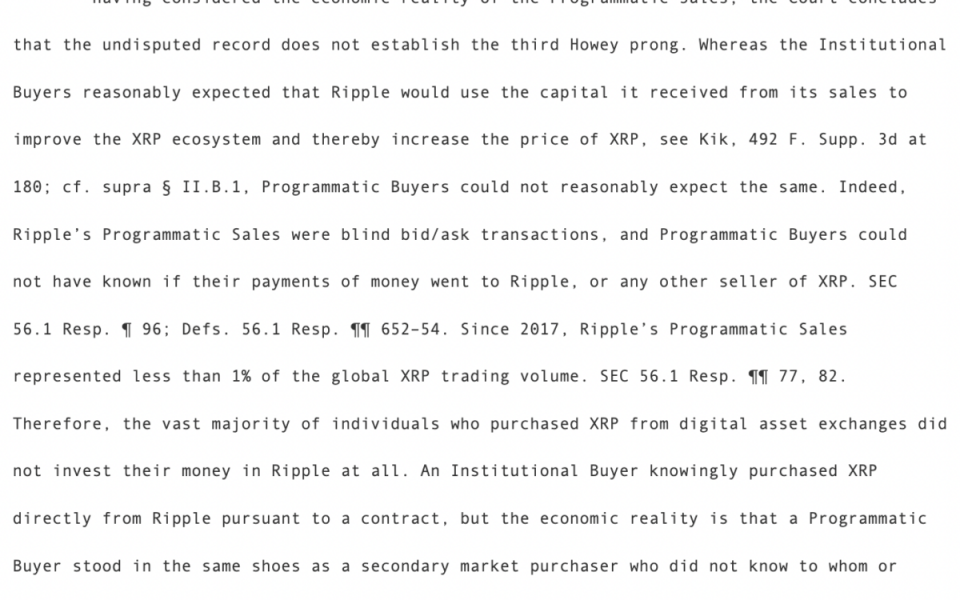XRP Ruled ‘Not a Security’ in Partial Win for Ripple Labs
In a ruling that could help shape the future of cryptocurrency regulation in the United States, U.S. federal judge Analisa Torres has delivered a mixed verdict in the case between the Securities and Exchange Commission (SEC) and San Francisco-based blockchain firm Ripple Labs. The lawsuit, which has been closely watched by the crypto industry, centered on whether Ripple’s XRP token constituted an unregistered security offering.
The court ruled that, while Ripple’s institutional sales of XRP did indeed constitute an unregistered securities offering, its sales of the token on exchanges did not. The decision — which comes after a three-year legal battle — could set a precedent for future token classification cases, and currently has the crypto market rallying in response.
A long time coming
The SEC had initially filed a lawsuit against Ripple Labs in December 2020, alleging that the company had raised $1.4 billion through an unregistered securities offering. The court granted part of the SEC’s motion pertaining to $728 million in institutional sales.
In its ruling, the court stated that “reasonable investors…in the position of Institutional Buyers, would have purchased XRP with the expectation that they would derive profits from Ripple’s efforts.” However, the court also ruled that “XRP, as a digital token, is not in and of itself a ‘contract, transaction[,] or scheme’” that embodies the requirements of an investment contract under the Howey test.
“Having considered the economic reality of the Programmatic Sales, the Court concludes that the undisputed record does not establish the third Howey prong,” the legal filing read. “Whereas the Institutional Buyers reasonably expected that Ripple would use the capital it received from its sales to improve the XRP ecosystem and thereby increase the price of XRP […], Programmatic Buyers could not reasonably expect the same.”

The court’s decision also addressed Ripple’s “essential ingredient” defense, in which the company argued that a physical contract must exist to be considered an investment contract. The court ruled against this defense, stating that in each instance where Ripple offered or sold XRP as an investment contract, a contract did exist.
The ruling also touched on the roles of Ripple co-founder Chris Larsen and CEO Brad Garlinghouse. The judge concluded that “Based on the disputed facts in the record, […] a reasonable juror could find that Larsen and Garlinghouse did not know or recklessly disregard Ripple’s Section 5 violations.”
In response to the ruling, Garlinghouse tweeted, “We were on the right side of the law, and will be on the right side of history.”
How the Hinman emails played a role
The case also brought attention to the so-called Hinman documents, internal SEC drafts and emails relating to former director William Hinman’s speech more than four years ago. These documents, which Ripple’s defense team gained access to after they were publically released, suggested that the regulator may be cherry-picking which projects to target.
The ruling comes at a time when the SEC has been increasingly active in its enforcement actions against various cryptocurrency projects. However, the decision in the Ripple case may signal a shift in how the SEC approaches the classification and regulation of digital tokens and how judicial entities consider similar cases involving Web3 organizations.
The news has caused the crypto market to rally, with the XRP token jumping to $0.6993 and ETH rising to $1,988, respectively putting the tokens up 48.61 percent and 5.21 percent on the day at the time of writing.
Editor’s note: This article was written by an nft now staff member in collaboration with OpenAI’s GPT-4.
The post XRP Ruled ‘Not a Security’ in Partial Win for Ripple Labs appeared first on nft now.

